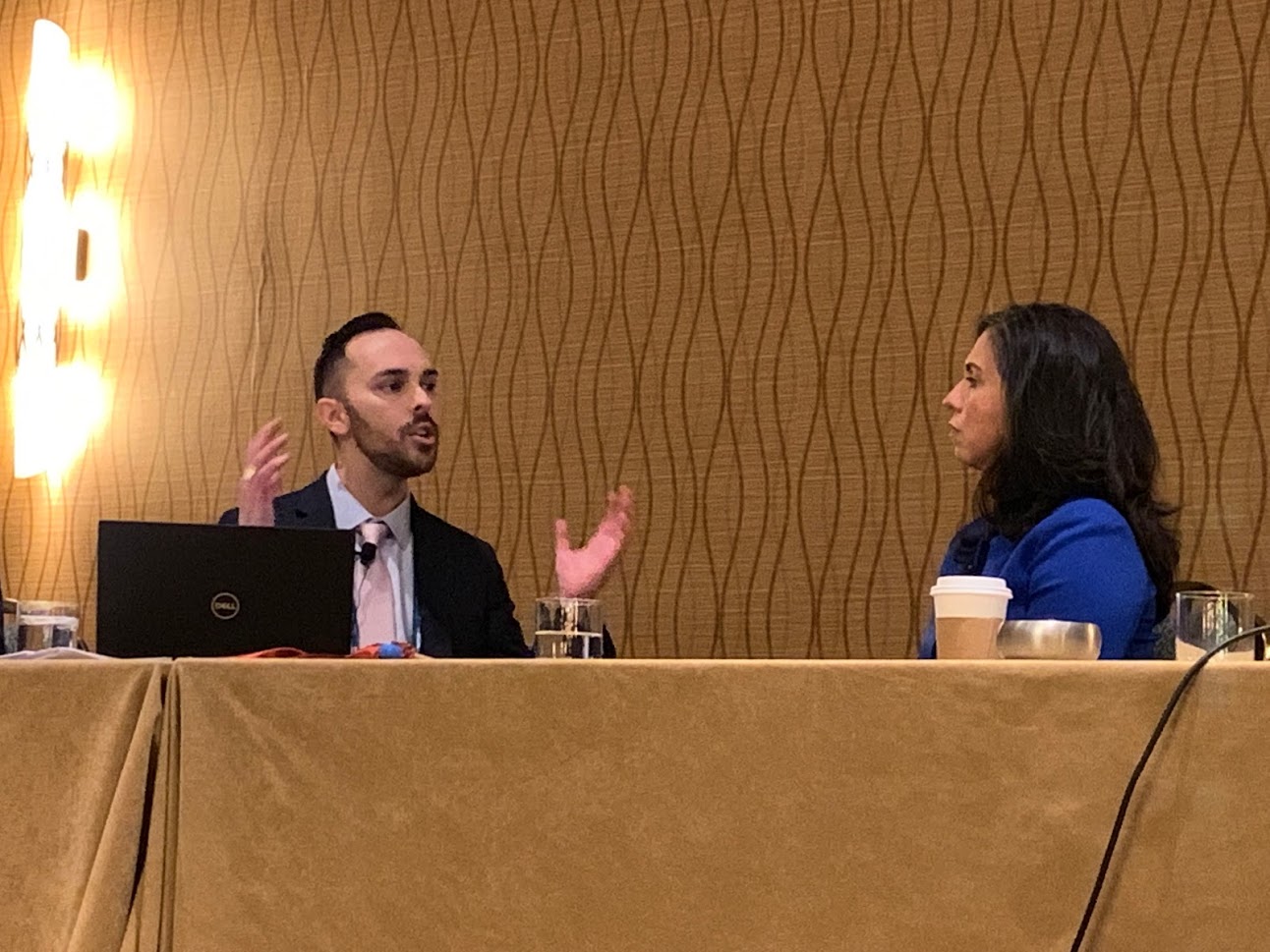Making a 30-Minute Brief Intervention a Reality



Can a 30-minute visit make a difference in integrated behavioral health and primary care?
Without question, says PCDC’s Andrew Philip, who recently demonstrated how at the National Council for Behavioral Health Conference.
[Register for PCDC’s free Primary Care Summit: ‘Closing the Behavioral Health Integration Gap.’]
In a live mock interaction, a fictional patient named “Mary” met with Dr. Philip, Senior Director of Clinical and Population Health and a clinical health psychologist.
“It’s doing the most we can with the amount of time that we have,” Dr. Philip said at the session, which mimicked an initial assessment, collaborative plan, and intervention in an integrated setting. “Having to wait a long time for an initial appointment is not an option.”
Reviewing Mary’s chart, he began the visit with a discussion about her general physical and emotional health, asking whether she felt depressed some days. Mary noted she was experiencing pain due to a previous injury — details that Dr. Philip documented, ensuring that her primary care doctor and others were “all on the same page,” he said. Attendees watched the notes unfold on a projection screen as he talked with the patient.

Other questions centered on caffeine, alcohol, and drug intake, suicidal thoughts, and Mary’s sleep concerns, including whether a doctor had spoken to her about sleep apnea.
“The way we experience pain, sleep, and mood all fit together,” Dr. Philip said to the patient. “We’re trying to draw some lines between certain things.”
After approximately 10 minutes of initial assessment, he described possible brief interventions and assured Mary that she was in control of her health. He also offered specific treatment and self-management options for improved sleep that could also address mood and functioning.
“The opportunity to build rapport starts immediately,” said co-presenter Jonathan Muther, Ph.D., Vice President of Medical Services at Salud Family Health Centers, who praised Dr. Philip’s approach in providing context and explaining the purpose of the visit to the patient. “It doesn’t take multiple sessions to build rapport.”
Brief interventions are increasingly important, Dr. Philip said, given the need for decreased wait times and the context of provider-to-provider handoffs, among other factors.
“It’s amazing how an individual’s health trajectory can change, even when we only have 15 or 20 minutes to work with,” he said. “It’s a matter of clinicians setting expectations at the beginning and being up front about it. Brief visits like this are an acquired skill, but a vital tool for integrated care providers to get the right dose of treatment to the right people, at the right time.”
Read a full account in Mental Health Weekly (subscription-only).
Dr. Philip will speak next at the World Congress 8th Annual Summit on Integrating Behavioral Health and Primary Care Models Summit (May 20-21) in Orlando, leading a session titled “Advance the Role of Integrated Behavioral Health in Addressing Chronic Pain. To register, please visit the conference website.